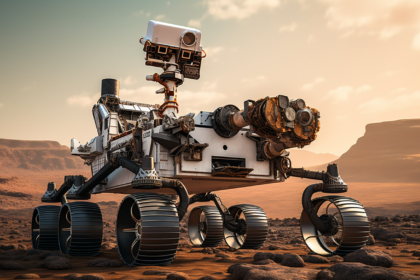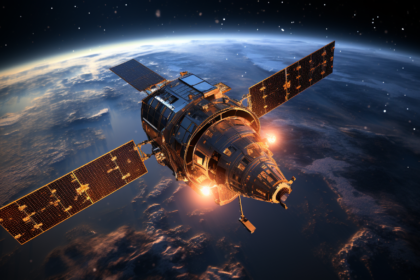The idea of space colonization has always attracted humans, mixing science fiction and science. It reflects an ambitious vision of humans colonizing other planets and becoming a multi-planetary species. This article examines space colonization’s motives, possible places, including Mars and the Moon, technological hurdles, international partnerships, and private businesses’ growing involvement. It also navigates complicated social and ethical issues and shows the path to this incredible goal. Space colonization invites us to reimagine our position in the universe and explore a future beyond Earth.
Motivation For Space Colonization
Space colonization has gone from science fiction to a compelling vision for humanity’s future. What fuels our space colonization interest? Economic, scientific, and survival concerns drive space colonization. Space is a tempting frontier for resource extraction and commerce. Asteroids contain rare minerals and metals like platinum and water. Mining these heavenly bodies is a viable business option.
Space colonization offers a unique scientific laboratory. Scientists may study cosmic events, the impact of long-duration travel on the human body, and life beyond Earth. Space colonies may change our view of the cosmos with their scientific findings.
The biggest reason for space colonization is survival. As we face climate change, resource depletion, and possible threats to Earth, off-world colonies become essential as insurance for humanity. As a multi-planetary species, we lessen the risk of putting all our eggs in one basket. Space colonization is fueled by a complicated mix of economic opportunity, scientific curiosity, and the need to protect our species from terrestrial threats.
Targeting New Frontiers: Potential Colonization Sites
Space colonization demands careful selection of celestial worlds as human dwellings. Mars is a leading contender. The Red Planet has several colonization benefits. First, Mars has a day-night cycle, seasonal fluctuations, and a thin atmosphere like Earth. The commonalities make it a more friendly contender than other celestial bodies. Mars is not as Earth-like as Earth, yet it is pleasant compared to space.
Second, Mars has tremendous resources for human settlement. Polar water ice may be mined and turned into drinking water and oxygen. Essential minerals in Martian soil may be utilized to grow plants and build. These resources eliminate Earth-based supply trips, enabling self-sufficiency.
Lunar colonies might lead to further space exploration. The Moon is just three days from Earth, making it ideal for testing and improving technology for distant settlements. Launching Mars and other missions from lunar homes is possible.
The Technical Challenges Of Space Colonization
Space colonization is technically tricky. Building and sustaining human homes outside Earth’s protective atmosphere requires creative ideas. Space is hostile; thus, life support systems are essential. Space habitats need steady temperatures, air, water and nutrient circulation. These requirements must be met in self-contained ecosystems or with sophisticated life support technologies.
Another critical issue is radiation shielding. Solar and cosmic rays assault space. Advanced shielding materials and underground homes are needed to protect colonists from harmful radiation. Sustainable space colonization requires resource use. Habitats must use local resources to decrease Earth resupply trips. This involves obtaining water from the Moon and Mars and recycling and reusing habitat supplies.
Sustainability and self-sufficiency are essential for space settlements. These communities should be able to produce food, water, and energy without Earth’s help. Closed-loop ecosystems and resource recycling are critical to self-sufficiency. These technical obstacles are challenging, but they provide scientific and technological potential. Space colonization spurs innovation that benefits Earthlings and extraterrestrials.
International Collaborations And Private Ventures
Space colonization is a worldwide effort. International cooperation is crucial to creating human homes beyond Earth. The ISS is an excellent example of global collaboration. This orbiting laboratory is a result of NASA, Roscosmos, ESA, JAXA, and CSA working together. The ISS has helped us comprehend living in space, conduct space-based research, and test long-duration mission technology.
Space colonization now involves private enterprises. SpaceX, headed by Elon Musk, has received attention for its Mars colonization aim. The business is creating the reusable Starship spaceship for interplanetary travel. SpaceX wants to build a self-sustaining Mars colony, showing how private companies are driving space exploration. Space colonization benefits from international and private partnerships. International collaborations share resources and experience, while private businesses provide innovation and competition. These entities’ dynamic interaction offers a better space colonization future.
The Social And Ethical Dimensions Of Colonizing Space
Beyond technological and scientific issues, space colonization involves severe social and ethical issues. Human expansion into space raises legal, governance, and moral issues that must be considered. Space colony governance is essential. How are these colonies administered, and by whom? Outer Space Treaty, ratified by over 100 nations, is the foundation of space law, limiting state sovereignty over celestial bodies. It needs to address space habitat governance, creating a legal and ethical gap.
Another important aspect of space colonization is environmental ethics. Extraterrestrial ecosystems must be protected and managed ethically. Colonialists must avoid infecting heavenly worlds with terrestrial microbes and minerals, which might harm local ecosystems. Space colonization also challenges human essence and identity. How will life in space colonies change our values and identity? How will it affect our Earth-universe responsibility? These questions explore our nature and our place in the universe.
The Roadmap To Space Colonization
Space colonization requires meticulous planning and execution. Space colonization follows a systematic approach that builds on prior successes. Early space colonization may entail lunar and Martian settlements. These communities test important technology and reveal life on other planets. The Moon offers a chance to improve resource use, self-sufficiency, and interplanetary transit infrastructure.
As these early colonies develop, they may build more significant habitats with particular functions. Other habitats may be research or industrial hubs, while others extract and produce resources. These colonies’ interconnectedness allows specialization and resource sharing. The ultimate objective of space colonization is multi-planetary species. This implies building self-sustaining colonies on Mars and elsewhere. Advanced propulsion, closed-loop life support, and resource utilization technologies are needed to achieve this goal. It requires a long-term commitment to achieve space colonization in the future decades.
Conclusion
Space colonization symbolizes humanity’s tenacious spirit and insatiable curiosity. Economic opportunity, scientific frontiers, and the need to protect our species drive this bold ambition. Selection of prospective habitats, innovation to solve technological problems, and partnership between states and private organizations lead our space colonization efforts. Space colonization involves deep issues about government, ethics, and our role in the cosmos, not just technology.










